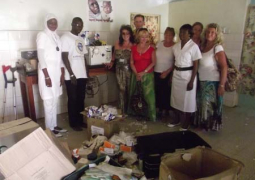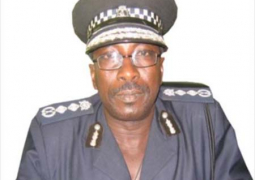Media repression will soon be a thing of the past in the West Africa sub-region. Meeting on the fringe of the 46th Ordinary Session of the African Commission on Human and Peoples' Rights on 10-11 November 2009, the West African Bar Association (WABA) with support from the MacArthur Foundation organized a "Bar-and-Media Interaction on the Promotion of Human Rights in West Africa".
At the two-day interaction involving lawyers and journalists from across West Africa, the participant made important observations and a seminal declaration that promise to liberate the media from the shackles of tyranny and press freedom predation. Participants noted that despite progress made in the practice and activities of media in member states, West African journalists and the media continue to face serious challenges that hinder the smooth operation of their work; that relations between the Bar and media practitioners should be better than are presently configured; that while in some countries, the media is over-regulated, in other countries there is not sufficient safeguard for practice of free media.
It was for these reasons that the participants made a Declaration on the role of the Bar in the promotion and protection of press freedom in West Africa. In the Declaration, participants called on national bar associations as stand-alone institutions and as collective to work among other things to promote and support the decriminalization of anti-press laws in all member states where the contrary holds; to support and ensure the exchange of information within associations and member states in the sub region as a means of experience-sharing, learning from best practices and capacity building for member bar associations; to increase information flow and establish concrete platforms for easy access to information to enhance work at national and regional levels; to collaborate with media practitioners to demand member states to enact laws that guarantee access to information; to create platforms to encourage and engender responsible journalism in the sub region; to strengthen professional ties between bar associations/societies and media unions/groups; to review national media statutes and bring about harmonization of such laws to promote free media; to promote the liberalization of the media space in member states of ECOWAS and work with press unions on the removal of restrictive and onerous conditions for the establishment of media institutions in West Africa; to establish, at national and regional levels, a fund to support the promotion of media rights and free press in West African countries; and to always stand and rise in defence of media practitioners whose rights and/or freedom are under any kind of threat.
This Declaration represents a forward movement for the media in West Africa. WABA is keen to give bite to the Declaration. With the ECOWAS Community in place, tyrants and predators of press freedom would before long have no hiding place in the sub region because the media would be free to hold leaders at all levels to account for their stewardship. This will be the beginning of an open West African society. But then again, the media should demand of themselves the same level and degree of accountability and transparency they demand of political and business leaders by practising ethical journalism governed by accuracy, balance and fairness.
"The media. It sounds like a convention of spiritualists."
Tom Stoppard



